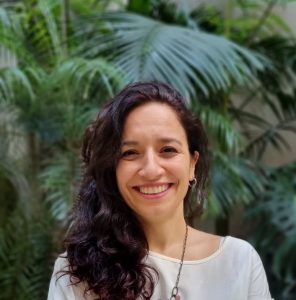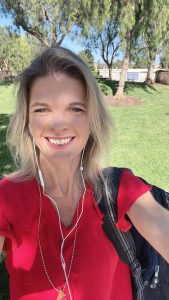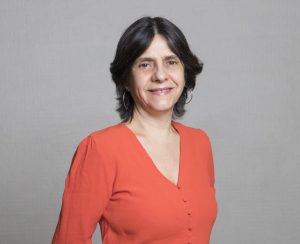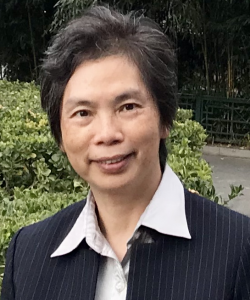NETWORK
Scientists’ Corner: Meet our Experts
Leading the conversation on the Science of Learning.
Scientist of the Month: June 2025
Assistant Professor Kaja Jasińska, Applied Psychology and Human Development, University of Toronto.
I am driven by a deep curiosity about how early language experiences shape the brain’s incredible capacity for learning. By combining cutting-edge neuroimaging with genetic and behavioral research, I strive to uncover the foundations of language and cognition.
I study the neural systems that support language and cognitive development and learning using a combination of behavioral, genetic, and neuroimaging.
My research focuses on how early life experiences, including bilingual and multilingual language exposure, shape neurocognitive development and learning. I particularly emphasize children growing up in poverty-related risk environments, including rural communities in West Africa and recently resettled refugee children in Canada. Utilizing portable neuroimaging technologies, we advance our understanding of brain development in understudied, low-resource settings worldwide.
I earned my Ph.D. from the University of Toronto, completed postdoctoral training at Haskins Laboratories, and currently lead the BOLD lab. I have received multiple awards, including the Jacobs Foundation Early Career Fellowship and the MIT Solve LEAP Fellowship, and am a visiting scientist at UNESCO’s Mahatma Gandhi Institute.
Description of her work
My current work includes:
- Reducing Poverty and Child Labor by Promoting Literacy Development in Children in Rural Cocoa-Producing Communities: This study, part of the TRECC program, examines how poverty, child labor, and learning to read in a new language (French) affect literacy in children from rural cocoa communities in Côte d’Ivoire. The research uses behavioral tests and portable brain imaging (fNIRS) to understand brain development under these challenges and guide policies to improve literacy and reduce poverty’s impact.
- EdTech literacy program (Allô Alphabet) is a mobile phone ed-tech program that delivers reading lessons to children in rural Côte d’Ivoire to improve foundational literacy skills.
- Impact of displacement on refugee children: Examining how migration and resettlement experiences influence neurocognitive development and learning among refugee children in Canada.
- Supporting internally displaced children in Nigeria: Investigating the socio-emotional and educational needs of children affected by displacement.
Key Findings
Developmental timing of education, for example, starting school late, is related to how the brain’s neural network for reading and children’s literacy skills form.
Useful Links
- Dr. Kaja Jasińska’s website.
- Dr. Kaja Jasińska Google Scholar Page.
- Brain Organization for Language and Literacy Development Laboratory, BOLD lab.
Scientist of the Month: May 2025
Professor Jo Van Herwegen, Professor of Developmental Psychology and Education, IOE UCL’s Faculty of Education and Society, deputy-director for Centre for Educational Neuroscience. London, UK.
From my first encounter with children with Williams syndrome, I was inspired by their unique ways of communicating and learning. This sparked a lifelong commitment to researching how individuals with learning difficulties develop and thrive. I believe that by understanding these diverse learning pathways, we can create inclusive, evidence-based educational tools that empower every learner to reach their fullest potential.
I’m originally from Belgium, where I was studying for a master’s degree in psycholinguistics when I first met children with Williams syndrome. Fascinated by their unique language profile, I contacted the late Professor Annette Karmiloff-Smith in London, a leading expert in this field. She welcomed me as a volunteer researcher in her lab, and what was meant to be a two-week visit turned into the start of my career—and I’ve been in London ever since. Twenty years on, I continue researching development in individuals with genetic conditions and learning difficulties. Outside of work, I enjoy long-distance running, swimming, and cooking.
Description of her work
My research focuses on improving educational outcomes, especially for those with learning difficulties and neurodevelopmental conditions, using developmental psychology and educational neuroscience evidence. I am particularly interested in examining the mechanisms of learning for those with Special Educational Needs and Disabilities (SEND) through cognitive science and targeted interventions, as well as issues and best practices around policy (i.e., SEND Code of Practice, country policy comparisons) and educational staff training.
Key Findings
By investigating the cognitive mechanisms in individuals with learning difficulties and genetic conditions, our research has revealed that:
- Development begins very early, and differences in infancy can have a cascading effect on later life outcomes.
- Development is lifelong: People with learning difficulties continue to learn well beyond the age of 18.
- Many individuals with neurodevelopmental conditions learn differently, offering valuable insights into brain plasticity and alternative learning pathways.
- These findings not only enhance our understanding of the brain but also support the creation of evidence-based, practical, low-cost, and scalable tools and interventions.
Useful Links
- Jo Van Herwegen profile.
- Jo Van Herwegen LinkedIn Profile.
- Blog: The UNESCO-IBE Portal on Sciences of Learning.
- The University College London. IOE – Faculty of Education and Society
- Center for Educational Neuroscience.
Scientist of the Month: April 2025
Adjunct Professor Maria Julia Hermida, Universidad Nacional de Hurlingham, and Assistant Researcher at the National Council of Scientific Research, Argentina.
Growing up in Latin America, I’ve seen firsthand the impact of inequality and social injustice.
The Science of Learning has given me powerful tools to not only understand these challenges but to develop interventions that can help create a more just society.
Description of his work
I have studied the individual, social, and demographic factors influencing preschool children’s cognitive outcomes (e.g., executive functions, intelligence, speed processing) in rural and urban poverty contexts across varying levels of deprivation.
Additionally, I have designed and evaluated interdisciplinary educational interventions to mitigate the negative cognitive effects of poverty. These include neuroscience-based approaches like adaptive software for executive function training, coding programs, and methods such as “learning by teaching.” My research has shown the effectiveness of some interventions and how others vary depending on socioeconomic context (e.g., rural vs. urban).
I’ve also applied cognitive science to create cost-effective interventions for improving children’s health education, such as initiatives targeting dengue prevention and hand-washing habits.
Currently, I am investigating how economic unpredictability impacts children’s cognitive development. Using a strength-based approach, we aim to uncover hidden talents in children from deprived and unpredictable environments.
Key Findings
One of our key findings is that poverty is not a single, uniform concept but varies significantly in its risks depending on context. Traditionally, poverty has been treated as a single measure tied to socioeconomic status (SES) and its impact on cognitive development. However, our research shows that this approach oversimplifies the issue. For example, rural and urban poverty, even with similar SES risk levels, present very different challenges for learning and cognitive development. Rural poverty, in particular, poses greater obstacles, and interventions effective in urban settings often fail in rural contexts. This is crucial because while most studies focus on urban poverty, extreme poverty is far more common in rural areas.
Another important discovery comes from applying insights from cognitive neuroscience to improve health education. We used the concept that teaching others helps consolidate knowledge. By empowering children to teach their parents about dengue—a major “poverty disease”—we significantly increased awareness in both groups. Remarkably, this simple 10-minute intervention achieved the same results as traditional methods requiring two months of effort.
All my research is interdisciplinary and collaborative, involving educators, NGOs, and researchers from various fields. I conduct my work directly within deprived communities, using a situated approach to collect and interpret data together with local stakeholders. Since much of the science of learning (SoL) is based on Global North contexts, my work contributes valuable insights from the Global South, addressing realities often overlooked in mainstream research.
Useful Links
- Maria Julia Hermida website.
- Maria Julia Hermida LinkedIn Profile.
- Hermida, M. J., Shalom, D. E., Segretin, M. S., Goldin, A. P., Abril, M. C., Lipina, S. J., & Sigman, M. (2019). Risks for Child Cognitive Development in Rural Contexts. Frontiers in Psychology, 9, 2735. https://doi.org/10.3389/fpsyg.2018.02735
- Hermida MJ, Perez Santangelo A, Calero CI, Goizueta C, Espinosa M, Sigman M. Learning-by-Teaching Approach Improves Dengue Knowledge in Children and Parents. The American Journal of Tropical Medicine and Hygiene. 2021;105(6):1536-1543. doi:10.4269/ajtmh.21-0253
- Hermida, M. J., Segretin, M. S., Prats, L. M., Fracchia, C. S., Colombo, J. A., & Lipina, S. J. (2015). Cognitive neuroscience, developmental psychology, and education: Interdisciplinary development of an intervention for low socioeconomic status kindergarten children. Trends in Neuroscience and Education, 4(1–2), 15–25. https://doi.org/10.1016/j.tine.2015.03.003
Scientist of the Month: March 2025
Olav Schewe, Author & PhD Candidate, Department of Education, University of Oxford.
True learning begins when we replace ‘Can I?’ with ‘How can I?’—through deliberate practice, strategic incubation, and collaborative insight, we transform challenges into stepping stones.
I am the author of two international best-selling books on effective learning, advisor, and PhD Candidate. My interest in the brain and effective learning strategies stems from my own educational journey. As a student, I tried to find more effective ways to learn and read many books on the topic. When I’m not working, I like to explore the world, learn new things, read, and spend time in nature.
Description of his work
My research interests center on two main questions:
1) How can cognitive psychology and neuroscience insights help inform the development of improved learning practices, teaching practices, and EdTech products?
2) How can we support learners in adopting more effective learning strategies and practices?
My research explores the impact of digital study skills interventions within higher education courses. I employ randomized controlled field experiments coupled with interviews to examine the extent to which these programs can influence students’ mindsets and behaviors.
Key Findings
Students’ use of effective study habits and strategies strongly predicts their academic success. Fortunately, these habits are not fixed traits; they can be developed and enhanced with training.
Useful Links
- Olav Schewe website.
- Olav Schewe LinkedIn Profile.
- TEDx W.C. Mepham High: “The Power of Asking How.”
- Where to buy his books:
- “Learn Like a Pro,” written together with Dr. Barbara Oakley, focuses on neuroscientific strategies to learn anything and is geared towards all learners.
- “Super Student” is geared towards high school and college students and is a synthesis of evidence-based strategies and best practices for student success.
- Learn Like a Pro: edX MOOC.
Scientist of the Month: February 2025
Professor Megan M. McClelland. Professor and Director of the Hallie Ford Center for Healthy Children and Families at Oregon State University
Our research shows that by nurturing self-regulation skills early on, we can empower children to confidently navigate their world. It’s not just about academic success; it’s about equipping our young learners with the tools they need to thrive in all aspects of life. When we collaborate across disciplines and cultures, we create interventions that are not only effective but also accessible to all, paving the way for a future where every child can reach their full potential.
I am passionate about supporting children’s success and the foundational skills they need to be successful. I grew up in Maui, Hawaii, which was an important influence on my perspective and research interests. I am a Professor and Director of the Hallie Ford Center for Healthy Children and Families at Oregon State University, which promotes the development and well-being of children, youth, and families.
Description of her work
My research focuses on optimizing children’s development, especially as it relates to self-regulation, executive function, and school success. My recent work has examined links between self-regulation and long-term outcomes from early childhood to adulthood, advances in measuring self-regulation, and intervention efforts to improve these skills. I work with colleagues and collaborators worldwide to develop self-regulation measures and improve school success in young children. I am also leading a center to better support early childhood educators in Oregon and co-leading an NIH-funded center to promote children’s environmental health.
Key Findings
I am really interested in developing and sharing evidence-based measures and interventions that are practical, low-cost, and scalable. We have developed a measure of self-regulation in 31 languages and used around the world (called the Head-Toes-Knees-Shoulders task) and an intervention called Red Light, Purple Light, that has been shown to improve children’s school readiness and success.
Useful Links
Professor Megan McClelland Profile: https://health.oregonstate.edu/directory/megan-mcclelland
The Kindergarten Readiness Research Program: https://health.oregonstate.edu/research/kreadiness
Hallie E. Ford Center for Healthy Children and Families: https://health.oregonstate.edu/hallie-ford
Scientist of the Month: January 2025
Associate Professor Janaina Weissheimer. Department of Foreign Languages and Brain Institute, Federal University of Rio Grande do Norte Brazil.
Language serves as a window into the intricate workings of cognition and mental processes. My journey through various regions of Brazil has led me to the beautiful shores of Natal, where I am passionate about bridging the gap between scientists and educators. Through my research, I aim to unravel the psycholinguistic processes that shape our understanding of speech, particularly in how environmental factors influence language development across different stages of life.
The idea of language as a window to investigate cognition and mental processes has always sounded fascinating to me. I’ve lived in different parts of Brazil, but the warm sea and breathtaking beaches have brought me to Natal, in the northeast of Brazil, where I’ve been thrilled to work and live. For the past 4 years, I’ve integrated the National Science for Education Network board in Brazil to help create opportunities for scientists and educators to work together.
Description of her work
My research focuses on descriptions of psycholinguistic processes that have been analyzed with the help of natural language processing tools. I have focused on applying graph analysis in different areas to better characterize what aspects of speech can be associated with typical and atypical behavior throughout the lifespan, given variables related to aging, as well as biological and social contexts, such as bilingualism. I am also interested in the effects of environmental factors, such as education and reading habits (in monolingual and bilingual contexts), in clinical and non-clinical populations at different developmental stages (from childhood to aging).
Key Findings
Our team has developed a precise quantification of mental processes assessed through language techniques. This allows us to disentangle bio/social markers by examining naturalistic protocols in different contexts.
Useful Links
Professor Janaina Weissheimer: https://orcid.org/0000-0002-6318-4906
Rede Nacional de Ciência para Educação: https://cienciaparaeducacao.org
Scientific Publications:
1. https://www.sciencedirect.com/science/article/pii/S0960982220317425
2. https://www.sciencedirect.com/science/article/abs/pii/S2451902223000988
3. https://onlinelibrary.wiley.com/doi/10.1111/mbe.12122
5.https://www.frontiersin.org/journals/psychology/articles/10.3389/fpsyg.2022.940269/full
6. https://www.eurokd.com/doi/10.32038/ltrq.2021.26.01?vId=416&aId=391
Scientist of the Month: December 2024
Professor Carmen Julia Coloma Tirapegui. Professor at the University of Chile, Department of Speech Therapy, and the Institute of Advanced Studies in Education.
Understanding and supporting language development in children with Developmental Language Disorder is key to their academic and personal success, as each language skill builds a foundation for their future.
I am a linguist with a Master’s of Arts, a Master’s in Special Education, and a PhD in Psychology. My work has focused on the study of oral and written language, specifically in children with Developmental Language Disorder (DLD). Language development problems tend to impact these children’s written performance as well, and my research focuses on understanding this complex relationship. In addition, I develop instruments to assess child language and interventions to support children with DLD. I have been the Director and Deputy Director of the Speech Therapy Department of the University of Chile.
Description of her work
Currently, my research focuses on two main areas:
- Characterization of the decoding (the ability to transform written words into spoken expressions) and reading comprehension of 4th grade/primary students with DLD. Children are studied in 4th grade because this level is the end of the elementary school level in Chile, which means that children are in a position to use reading to learn.
- Development and analysis of programs to simultaneously work on vocabulary and the ability to identify and manipulate sounds within spoken words, a concept known as phonological awareness. Vocabulary and phonological awareness are relevant for the reading learning of children with Developmental Language Disorder.
My main lines of research include:
– Developmental Language Disorder and reading performance.
– Grammar in Language Development Disorder.
– Development of instruments to assess child language.
– Interventions to support linguistic aspects of children with DLD.
Key Findings
A fundamental aspect of my work has been identifying that vocabulary and phonological awareness are predictive skills for initial reading in Spanish-speaking DLD students. As a result, I have proposed programs that work on these skills in an integrated manner, seeking to enhance their development more effectively than if they were addressed separately.
Speech therapists applied the program to children with DLD in four schools in the Metropolitan Region of Chile. The implementation was carried out during the children’s school day, and the sessions were distributed as follows: 60 sessions exclusively with students with DLD and 40 sessions with the whole class.
The integrated work of the above skills showed that both vocabulary and phonological awareness increased. However, phonological awareness skills increased more than vocabulary. This result suggests that integrated work benefits phonological awareness more than vocabulary.
Useful Links
Professor Coloma Tirapegui: https://deptofonoaudiologia.med.uchile.cl/profesores/carmen-julia-coloma-tirapegui/
Research publications: https://www.researchgate.net/profile/Carmen-Coloma
Centro de Investigación Avanzada en Educación. Universidad de Chile: https://www.ciae.uchile.cl/
Scientist of the Month: November 2024
Professor Nancy Law, Professor in Learning Sciences and Learning Technologies, Faculty of Education, University of Hong Kong.
The most important quality of a teacher is not his/her instructional prowess but whether he/she understands how people learn and how to create the conditions for people (young or old) to assume their agency and ownership of their learning. This insight, gained from my experience as a STEM teacher, has guided my research in learning sciences and my pursuit of innovative approaches to technology-enhanced learning.
My professional journey began decades ago as a STEM teacher in a Hong Kong secondary school, following my MPhil in experimental cosmic ray physics. This teaching experience was profoundly humbling and enlightening. It revealed to me that a teacher’s most crucial quality isn’t instructional prowess, but rather the ability to understand how people learn and to create conditions for learners of all ages to take ownership of their education. This realization inspired me to pursue a PhD in learning sciences. Beyond my academic pursuits, I’m passionate about exploring new places, immersing myself in diverse cultures, and savoring various cuisines.
Description of her work
I am a professor and Associate Dean (Research) in the Faculty of Education at the University of Hong Kong. My career in educational research and innovation spans several decades, during which I have focused on harnessing the transformative potential of digital technology in education. I served as the Founding Director of the Centre for Information Technology in Education (CITE) for 15 years from 1998 and currently serve as its Deputy Director. My research centers around the scalable integration of digital technology for transformative changes in learning and teaching that empowers learners, teachers, and communities.
As an elected Fellow of the International Society of the Learning Sciences, my ambition is to advance research in the following areas:
- Sustaining and scaling technology-enhanced learning as a design science through applying and refining the Multilevel Multiscale (MLMS) model of connected learning in design-based implementation research in STEAM innovation school networks.
- Investigating learning and assessment of digital literacy and AI literacy, and how these relate to wellbeing and equity in contemporary society.
As part of the above efforts, I am developing a theoretical framework and technology for a design-aware learning analytics system, focusing on fostering students’ 21st-century
Key Findings
With decades of experience as a learning scientist focused on technology-enhanced learning, I’ve identified the need for a system that makes effective learning design accessible to all teachers, including novices.
I am very excited about the IDEALS (Intelligent Design Aware Learning Analytics System for 21st-century learning) project that I have been funded by the Quality Education Fund to develop for Hong Kong schools. This technology system is underpinned by a learning design language based on robust pedagogical theories and leverages the latest advances in learning analytics and artificial intelligence to close the learning design-learning analytics loop. We are hopeful that the IDEALS system, once completed, will contribute to advancing our understanding of how people learn through the rich learning design and connected learning analytics data collected from diverse learning contexts.
Useful Links
Professor Law: https://web.edu.hku.hk/faculty-academics/nlaw
IDEALS: https://ideals.cite.hku.hk/
Learning and Assessment for Digital Citizenship: https://ecitizen.cite.hku.hk/
Integrated SDL Approach to School-based STEAM Development (In-STEAM): https://instem.cite.hku.hk/
Scientist of the Month: October 2024
Dr. Victor Hugo Minces, Research Scientist, Department of Cognitive Science, University of California San Diego.
Growing up, I loved both science and art, but school made science seem boring. My journey through fine arts and neuroscience reignited my passion, and now I aim to inspire that same wonder in every child. I believe the science classroom can be a space of creativity and fascination, where students discover the beauty of the physical world through the connections between science, sound, and music.
As a child, I loved the arts and sciences, but at school, I was taught that science was a boring subject with tedious rules, and my interest in them was destroyed.
After high school, I studied fine arts. During that time, I gradually became intrigued by the beauty of the physical world and the challenge of understanding it. I signed up to take some courses at the School of Physical Sciences at the University of Buenos Aires. I also was fascinated with neuroscience and went to obtain my Ph.D. in computational neurobiology at UCSD. In the latter years, I was able to bring together my passions, arts, science, and public service. My goal is that, through the connections between science, sound, and music, the science classroom becomes a space of creation and fascination.
Description of his work
My current work aims to make school more engaging and enjoyable. I do this by creating interactive web applications, physical hands-on experiences, and curricula. These tools allow children and teachers to experience the wonders of sound and learn science through playfulness and creation.
My team’s web applications replicate commonly used tools in STEM labs. However, we modified and enhanced them to make them highly user-friendly and suitable for creating and exploring sounds.
We conduct professional development for teachers and analyze the classroom implementation of the activities. This process allows us to iterate on both the curriculum and the applications, making them even more engaging and easier to implement.
Our web applications and resources are accessed approximately 400,000 times per year. This high level of engagement demonstrates the effectiveness of our approach in making science education more interactive and enjoyable for students and teachers alike.
Useful Links
Connect with Dr. Minces: https://www.linkedin.com/in/victor-hugo-minces-05330780/
Our program’s website: https://listeningtowaves.com/
Our paper about arts integration: https://escholarship.org/uc/item/2jg6c6qw
A short video describing our program: https://www.youtube.com/watch?v=pvsie4P7G0E
Connect with Dr. Victor Hugo Minces through his LinkedIn Profile.
Scientist of the Month: September 2024
Dr. Bosiljka Milosavljevic, Assistant Professor, Department of Biological and Experimental Psychology. Queen Mary University of London.
I am a psychologist interested in very early childhood development. I am particularly interested in examining development in the context of global health and supporting the implementation of neurodevelopmental research into diverse, global contexts.
I am a psychologist interested in very early childhood development. My work focuses on identifying early neural and cognitive markers that influence later developmental outcomes. I am also very interested in global health and have a strong passion for making developmental science representative of children around the world.
I currently work on the Brain Imaging for Global Health (BRIGHT) project, which examines child development from the third trimester of pregnancy to preschool age in The Gambia. We are trying to identify how early risk and protective factors shape brain and cognitive development in this context. Within this large study, my main focus has been to characterize cognitive development among the children in this setting. I am also interested in how maternal-infant relationships and the wider family network help promote healthy development amidst contextual risk factors like undernutrition.
Key Findings
What happens in infancy is important for shaping a child’s development. In my work so far, we have identified that early temperament, neural function, and attention relate to later cognitive skills and mental health.
Useful Links
Brain Imaging for Global Health (BRIGHT) project: https://www.globalfnirs.org/
Dr. Bosiljka Milosavljevic, Queen Mary University of London: https://www.qmul.ac.uk/sbbs/staff/dr-bosiljka-milosavljevic-.html
Research Gate: https://www.researchgate.net/profile/Bosiljka-Milosavljevic-2
Connect with Dr. Bosiljka Milosavljevic through her LinkedIn and X Profile.
Scientist of the Month: August 2024
Professor Roberto Lent, Emeritus Professor, Federal University of Rio de Janeiro, Brazil.
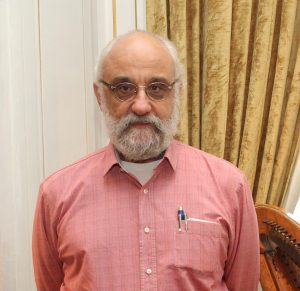
My interest in brain plasticity grew when my daughter was diagnosed with a brain malformation. This personal experience led me to explore how brain connections are shaped by both positive influences like education and challenges like disease. It’s clear that education is a powerful force for societal progress, and by bridging the gap between scientific research and classroom practice, we can harness brain plasticity to create more effective, evidence-based educational approaches.
I am a neuroscientist who originally graduated in Medicine with a PhD in Biophysics in Brazil, and I have a postdoctoral stay in Psychology at the Massachusetts Institute of Technology, USA. During my stay in Cambridge, my daughter was diagnosed with a brain malformation, and this strongly attracted my interest in the development and plasticity of the brain. From then on, I dedicated my work to understanding how brain connections form along life and how they become molded by the environment, for the good (education) or for the bad (diseases).
Neuroplasticity is the brain’s ability to change its structure and function by interaction with the environment. My first studies on this topic employed animal models of developmental defects of a big bundle of fibers in our brain, called corpus callosum. I was interested in checking whether the brain was able to change callosal connections throughout life and how this occurred. From animal models, my team at the lab moved to a direct approach to human brains, employing neuroimaging tools. We discovered a phenomenon called long-distance plasticity, by which the great avenues of brain connections could change profoundly in certain circumstances: malformations, trauma, and body accidents. My group is now dedicated to studying brain plasticity in naturalistic settings, such as person-to-person interactions, using portable brain imaging techniques.
Key Findings
During the work to investigate pathological changes in human brain connections, a PhD student in my group discovered that what we thought were abnormal connections arising from pathologies, in fact, were present “secretly” in normal circumstances. We concluded that our brains develop a set of subtle connections that could serve as a connectomic reserve for later development under environmental demands. This discovery intensified my interest in education as a crucial example of the power of societal initiatives to influence the plastic sculpting of brain connections throughout life.
Useful Links
Rede Nacional de Ciência para Educação: https://cienciaparaeducacao.org
UNESCO Chair of Science for Education: https://www.catedraunescocpe.org/english
Articles IBE-UNESCO: https://solportal.ibe-unesco.org/
Where to buy his books: Amazon link.
Scientist of the Month: July 2024
Dr. Barbara Oakley, Distinguished Professor of Engineering, Dept of Industrial & Systems Engineering, Oakland University, Rochester, Michigan.
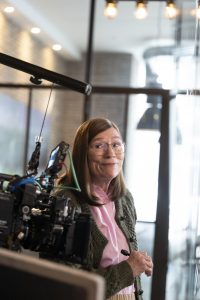
I love to bring fresh perspectives into my books by applying knowledge and experience from many different disciplines and real-world experiences. As a professor of engineering, I’ve also worked in lots of different places and done very different things: Russian translator on Soviet trawlers, a teacher in China, a US Army Captain, and a radio operator at the South Pole Station in the Antarctic. (I met my husband there—I had to go to the end of the earth to meet that man!).
My work focuses on the complex mechanisms of learning and how we can harness them to help people of all ages and backgrounds succeed. Drawing on my diverse background—from linguist in the U.S. Army to radio operator at the South Pole to professor of engineering—I aim to make the science of learning accessible and applicable to everyone.
Through my books like “A Mind for Numbers,” “Learning How to Learn,” and “Mindshift,” I share evidence-based strategies for overcoming procrastination, effective studying, and learning difficult subjects. I also teach one of the world’s most popular online courses, “Learning How to Learn,” which has reached over 3 million students worldwide. In addition to my work focused on learners, I also collaborate with Dr. Beth Rogowsky and Dr. Terrence Sejnowski to help educators enhance their teaching practices. Together with David Joyner of Georgia Tech, we have created a three-course MOOC series on Coursera called “Uncommon Sense Teaching,” which delves into the cognitive psychology and neuroscience behind effective teaching strategies in both face-to-face and online environments. We have also co-authored a book, “Uncommon Sense Teaching: Practical Insights in Brain Science to Help Students Learn,” to make this knowledge more accessible to educators worldwide.
Key Findings
Chunking, or breaking information into manageable pieces, is a powerful technique for mastering complex subjects. By focusing on understanding the main ideas and practicing them in short, frequent sessions, learners can effectively transfer information into long-term memory. This strategy, combined with regular recall practice and self-testing, can significantly improve retention and depth of understanding.
Useful Links
Professor Barbara Oakley’s website: www.barbaraoakley.com
Learning How to Learn Course: https://www.coursera.org/learn/learning-how-to-learn
Where to buy her books: Amazon link.
Scientist of the Month: May 2024
Dr. Sebastián J. Lipina, Applied Neurobiology Unit (UNA, CEMIC-CONICET), Buenos Aires, Argentina.

Science must question itself to define its place in the cultural and moral transformations that today requires our Civilization, and consequently must also constructively challenge those who design public policies: any scientific agenda that points to these efforts will contribute to building a more equal and fair society.
The work we do in our research team has three main goals.
-
- Learning about Poverty and Emotional and Cognitive Development:
First, we want to better understand the impact of living in poverty on children’s emotional and cognitive development during their first 20 years of life. Here, we consider how different social and cultural factors influence their brain development. We work collaboratively with our regional and international partners.
-
- Interventions to help kids:
We also create, run, and test experimental interventions that explore how the brain’s neural pathways (neuronal plasticity) and an individual’s ability to learn new skills (cognitive plasticity) can change during emotional and cognitive development. We study this topic in infants, children, and teens from low-income and wealthier backgrounds. Over the past 25 years, we have implemented different experiments, including cognitive training through manual and computerized activities, mother-child play sessions, and adaptation of school curricula.
-
- Policies for Child Development:
Our final goal is to apply this knowledge to design, implement, and evaluate policies promoting human development. We do this by understanding the views that caregivers and others involved in childcare have regarding self-regulatory development, which is how kids learn to understand and manage their own thoughts and feelings. We also work on creating decision-making tools, like algorithms, to help design and track policies focused on early childhood.
Key Findings
Growing up in poverty during childhood can impact how children manage their emotions and how they learn. However, these effects are not the same for every child. A broad range of factors can lead to different outcomes for children coming from homes living with and without socioeconomic deprivations. These factors can be, for example, the child’s health, the quality of relationships with their caretakers, environmental stressors, learning opportunities, parenting styles, the caregivers’ mental health, educational quality, and community resources. After implementing our experimental interventions, such as training and curriculum adaptation, we observed a positive influence on the children’s emotional development and learning capacities.
Further Readings
Migeot, J., Panesso, C., Duran-Aniotz, C., Ochoa, C., Huepe, D., Santamaría-García, H., . . & Lipina, S.J. (in press). Allostasis, health, and development in Latin America. Neuroscience and Biobehavioral Reviews.
Delgado, H., Lipina, S.J., Mamen Pastor, V., Muniz Terrera, G., Rodríguez, R., . . . & Carboni, A. (2024). Differential psychophysiological responses associated with decision-making in children from different socioeconomic backgrounds. Child Development. https://doi.org/10.1111/cdev.14082.
Pietto, M., Giovannetti, F., Segretin, M.S., Kamienkowski, J.E., & Lipina, S.J. (2023). Increased integration of functional connectivity after cognitive intervention in preschoolers from low socioeconomic status. Developmental Psychology. https://doi.org/ 10.1037/dev0001541.
Lipina, S.J. (2023). The importance of conceiving human development as a complex system. The Lancet Global Health. https://doi.org/10.1016/S2214-109X(22)00502-2.
Stevens, C., Pakulak, E., Segretin, M.S., Lipina, S.J. (Eds.) (2020). Neuroscientific explorations of poverty. Erice, Italy: International School of Mind, Brain and Education – Ettore Majorana Foundation for Scientific Culture. ISBN 978-987-86-6736-2.
Scientist of the Month: March 2024
Dr. Andrea Chiba, UCSD, Professor, Dept. of Cognitive Science and Program in Neuroscience

Providing opportunities for every child and family to thrive can be accelerated by globally sharing science and cultural knowledge surrounding learning and wellbeing.
The work of my laboratory team examines the neural basis of affect, learning, and attention.
We try to understand the dynamics of the brain and body and how they align with environmental demands to engage in learning. We use convergent techniques ranging from neurophysiological recording in rodents, computational and robotic models, and work that translates our basic science for the purpose of studying learning in natural settings such as classrooms. We examine experiential history as a means to understand individual differences in physiology, brains, and their manifestation in classroom learning. We believe that gaining a deep understanding of what makes the brain change states, and how those states impact learning and socialization can be fundamental in imagining how societies can be aligned with the learning needs of children and families for the purpose of thriving and wellbeing. I also engage in work directly with schools, educators, non-profits, and in global science of learning advocacy towards grass roots efforts to support education and society. In my first career, I was a high school mathematics teacher.
Key Findings
Time and timing matter for learning. The way in which students are able to synchronize or time their attention and action with their teachers and other students may relate to how well they are able to quickly pay attention to things in the world, like speech streams and video streams. We did a series of studies and discovered that an individual’s ability to musically synchronize with another person is related to their ability to rapidly attend to information, both auditory and visual. Group musical activities may be particularly relevant to building the ability to synchronize with others.
Further Reading
Khalil, AC, Minces, VH, Iversen, J, Musacchia, G, Zhao, C, Chiba, AA (2019) Music, Cognition, and Education. 21st CENTURY EDUCATION: THE LEARNER, THE ENVIRONMENT OECD Publications.
Khalil AK, Minces VH, McLoughlin, G. & Chiba A (2013). Musical synchrony predicts attention in school children. Frontiers in Educational Psychology, Special Issue: Educational Neuroscience, Constructivist Learning, and the Mediation of Learning and Creativity in the 21st Century. Front. Psychol, 02 September.
D’Andrea-Penna, G.M., Iversen, J.R., Chiba, A.A., Khalil, A.K., Minces, V.H. (2020) One Tap at a Time: Correlating Sensorimotor Synchronization with Brain Signatures of Temporal Processing, Cerebral Cortex Communications, Volume 1, Issue 1.




